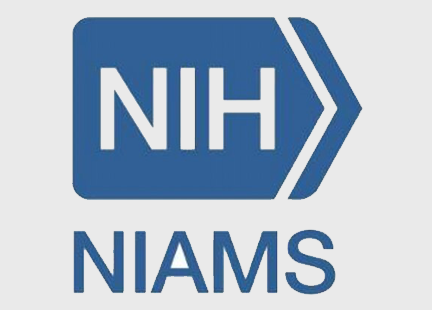
The National Institute of Arthritis and Musculoskeletal and Skin Diseases (NIAMS) of the National Institutes of Health announces four new Centers of Research Translation (CORT) awards. CORTs are team science programs designed to address translational research challenges in diseases or conditions within the mission of the NIAMS. The programs will build on basic research findings with the overarching goal of disease-specific translation.
The CORTs each contain highly meritorious translational research projects, one or more research cores and an administrative core. Combined, the projects and cores will generate new knowledge to improve understanding of human pathophysiology. They aim to identify new therapeutic targets, develop more effective treatments or diagnostics, or design novel prevention strategies for human disease.
This year’s CORT awards include:
- Alopecia Areata Center of Research Translation (AACORT) — Alopecia areata is an autoimmune disease in which the immune system, which is designed to protect the body from foreign invaders such as viruses and bacteria, mistakenly attacks the hair follicles, leading to hair loss on the scalp and elsewhere. Led by Angela M. Christiano, Ph.D., at Columbia University Medical Center in New York, N.Y., this center will focus on the development of new treatments for alopecia areata. Leveraging recent discoveries on the genetic basis of alopecia areata and new understanding of its pathogenesis, the AACORT aims to apply these findings in the clinical setting.
- Center for Lupus Research (CLR) — In the autoimmune disease systemic lupus erythematosus, or lupus, many organs and organ systems including the skin, joints, heart, lungs, kidneys, and brain, can be affected. Building on pioneering work to correlate lupus disease activity with certain gene expression profiles, Virginia Pascual, M.D., will lead the CORT at the Baylor Institute for Immunology Research in Dallas, Texas, to understand how the changes in gene expression contribute to lupus disease pathogenesis. The CLR will develop tools to monitor these pathways in patients, potentially leading to new interventional strategies and personalized treatments.
- Center of Research Translation in Muscular Dystrophy Therapeutic Development — The muscular dystrophies are a group of genetic diseases that cause progressive muscle weakness and degeneration. This CORT program, led by Kevin M. Flanigan, M.D., with the Research Institute of Nationwide Children’s Hospital in Columbus, Ohio, seeks to accelerate the translation of genetic therapies to potentially treat some of the most common forms of muscular dystrophy, including Duchenne muscular dystrophy and facioscapulohumeral muscular dystrophy.
- University of Michigan Fibromyalgia CORT — Pain is a common symptom for many musculoskeletal and rheumatic conditions. However, individual response to interventions designed to treat pain, such as surgery or medications, is highly variable, no matter how successful the treatment appears by clinical measures. This program, co-led by Daniel J. Clauw, M.D., and Chad M. Brummett, M.D., at the University of Michigan in Ann Arbor, will determine if this variability can be quantified or predicted using a fibromyalgia pain scale as a surrogate measure. By better understanding the underlying mechanisms associated with pain for several musculoskeletal and rheumatic conditions, the research will enable a more personalized approach to pain management for patients.
The mission of the NIAMS, a part of the U.S. Department of Health and Human Services' National Institutes of Health, is to support research into the causes, treatment and prevention of arthritis and musculoskeletal and skin diseases; the training of basic and clinical scientists to carry out this research; and the dissemination of information on research progress in these diseases. For more information about the NIAMS, call the information clearinghouse at (301) 495-4484 or (877) 22-NIAMS (free call) or visit the NIAMS website at https://www.niams.nih.gov.
